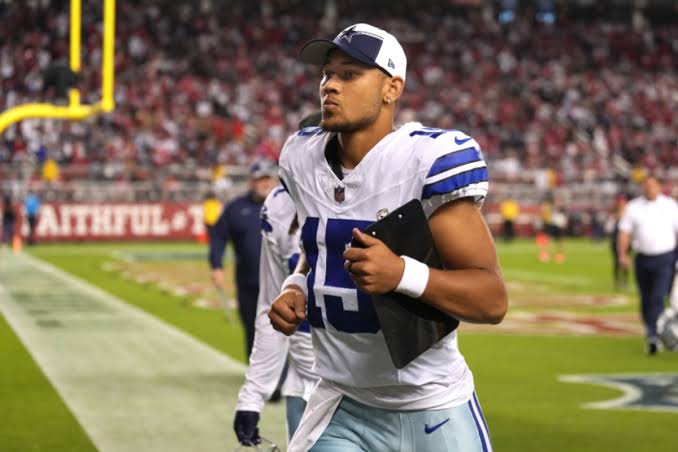It is crucial for the Cowboys to reconstruct a strong and versatile running game, requiring careful assessment and strategic decisions to stay competitive.

The Dallas Cowboys’ decision to bring
back veteran running back Ezekiel Elliott
for the 2024 season was met with
optimism and high expectations. After a
year-long stint with the New England
Patriots, where he amassed nearly 1,000
yards from scrimmage and five
touchdowns, Elliott’s homecoming was
anticipated to bolster the Cowboys’
backfield, especially following the
departure of Tony Pollard to the
Tennessee Titans.
Elliott’s Underwhelming Performance.
Despite the hopeful outlook, Elliott’s
performance upon his return fell short of
expectations. Over the first five games,
he participated in 108 snaps, a significant
reduction compared to the new starter,
Rico Dowdle. Elliott averaged a career-
low 3.3 yards per carry and accumulated
just 36 receiving yards on six catches. In
contrast, Dowdle rushed for 221 yards
and added 101 receiving yards, although
he did have a critical fumble in a recent
game.
The decline in Elliott’s productivity was
not solely due to on-field performance.
Reports surfaced of disciplinary issues,
including instances of tardiness to team
events and missing a meeting, which led
to his absence in a crucial game against
the Atlanta Falcons. These off-field
concerns further strained the dynamics
within the team and raised questions
about the decision to reintegrate Elliott
into the roster.
Rico Dowdle’s Departure and Its Implications.
Compounding the challenges in the
Cowboys’ backfield, Rico Dowdle is set to
enter free agency after a career-best
season. Dowdle’s departure leaves the
team without a proven lead running
back, creating a significant void in the
offensive lineup. The potential loss of
Dowdle, coupled with Elliott’s
underwhelming return, underscores the
pressing need for the Cowboys to
reassess and reinforce their running
back corps.
Strategic Missteps and Future Considerations.
The decision to rely on Elliott, given his
declining performance and off-field
issues, has drawn criticism towards
Cowboys’ owner Jerry Jones. Many argue
that greater investment should have
been made to strengthen the running
game to support quarterback Dak
Prescott, especially considering Prescott’s
substantial $240 million contract
extension. The lack of a robust running
attack not only hampers offensive
versatility but also places undue
pressure on Prescott, who has been
contending with hand and hamstring
injuries.
Looking ahead, the Cowboys face pivotal
decisions in reconstructing their
backfield. The free-agent market for
running backs in 2025, while not as
robust as previous years, offers options
such as Najee Harris, Aaron Jones,
Javonte Williams, Nick Chubb, J.K.
Dobbins, and Rico Dowdle. Alternatively,
the team may consider investing in a
high draft pick to secure a promising
running back talent.
Conclusion.

Ezekiel Elliott’s reunion with the Dallas
Cowboys serves as a cautionary tale
about the complexities of rekindling past
successes. The combination of
diminished performance, disciplinary
concerns, and strategic miscalculations
has left the team’s backfield in a
precarious position. As the Cowboys
navigate the offseason, the imperative to
rebuild a reliable and dynamic running
game is clear, necessitating thoughtful
evaluation and decisive action to realign
with their competitive aspirations.


